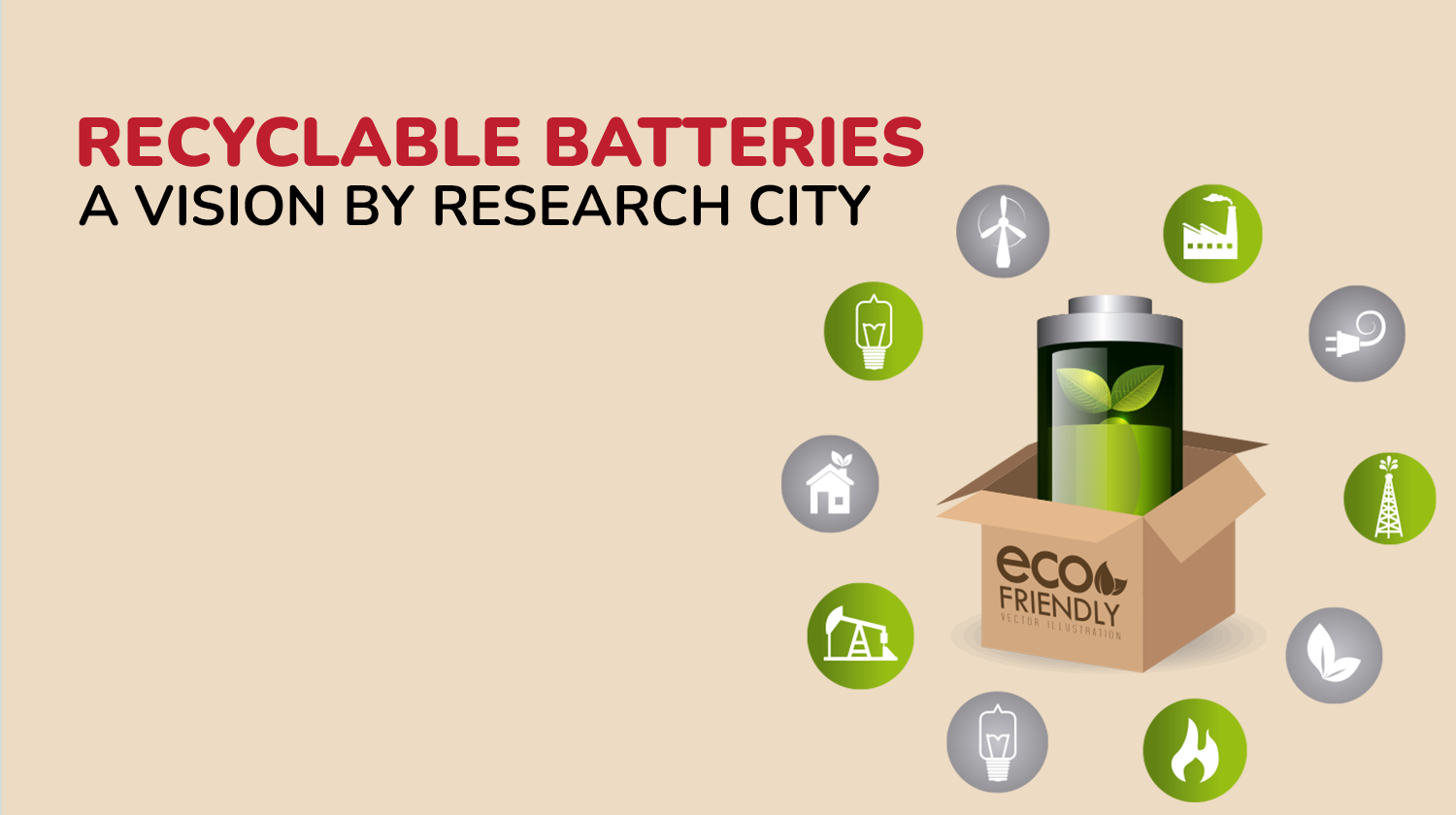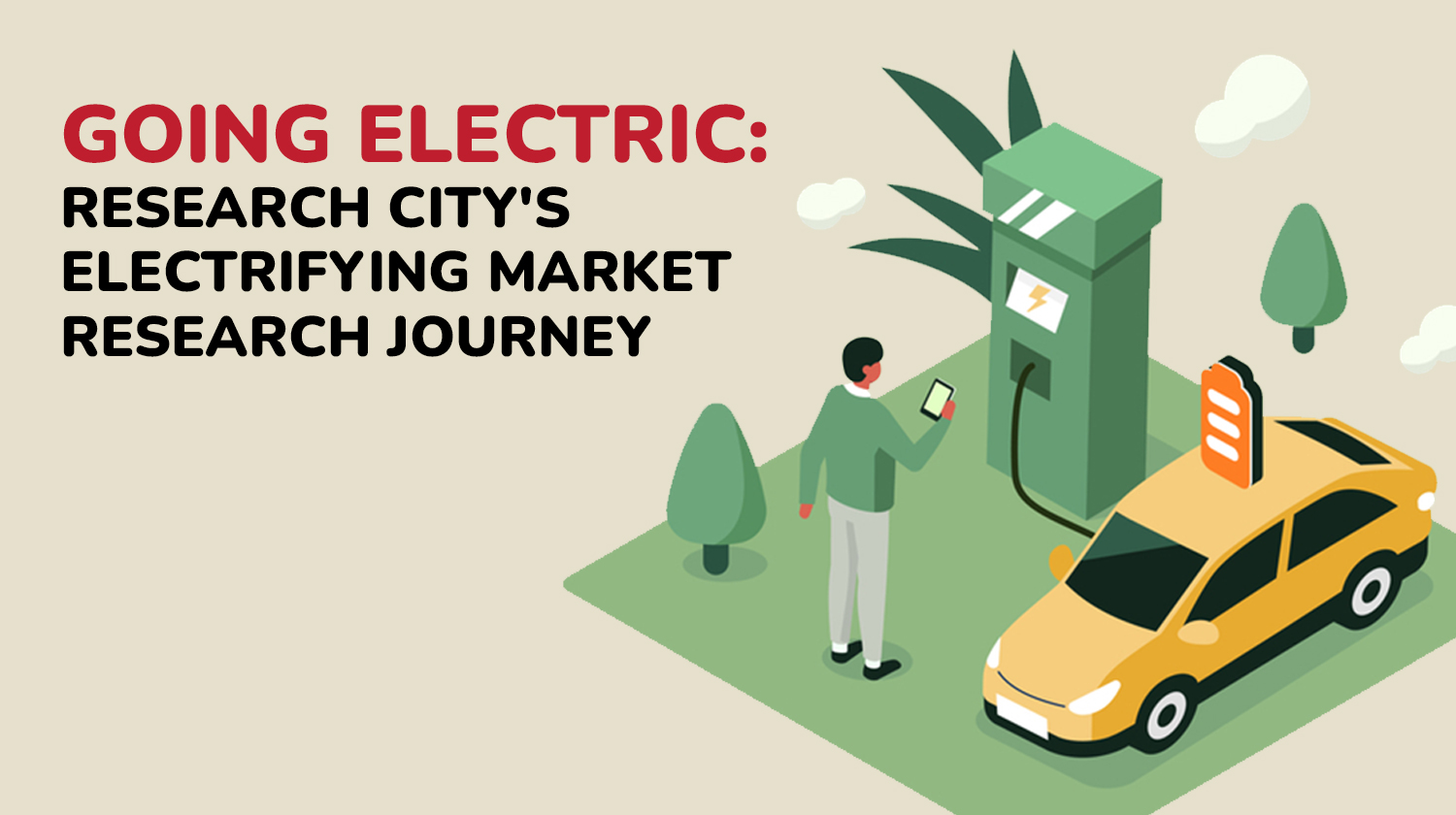
Research City, a trailblazer in emerging technology market research, has been at the forefront of driving the shift towards sustainable energy solutions, particularly in the realm of recyclable batteries.
In their groundbreaking study, Research City sheds light on the transformative potential of recyclable batteries, emphasizing their commitment to environmental responsibility and a greener future.
The Growing Need for Sustainable Battery Solutions
The study recognizes that while traditional batteries contribute to environmental pollution, recyclable options, such as those made of zinc, carbon, nickel, and cadmium, offer a viable solution. Research City emphasizes the recoverability of valuable materials from these batteries, making them a crucial component in minimizing waste.
Research City Executive Summary on Recyclable Batteries
Research City’s Pioneering Work
Research City’s extensive research reveals a promising future for recyclable batteries, also known as rechargeable batteries. The study notes a significant shift in consumer behaviour, with rechargeable battery sales surging over 15% last year, while single-use battery sales declined. The trend is projected to accelerate, with rechargeable batteries expected to constitute over 60% of the battery market by 2025.
A Growing Trend
Research City identifies a growing trend among millennials and younger generations who highly favour sustainable, eco-friendly products. Rechargeable batteries align seamlessly with their values, indicating a shift towards more environmentally conscious consumer choices.
An Opportunity for Manufacturers
In light of these trends, Research City sees a strategic opportunity for battery manufacturers to pivot towards rechargeable options. The study recommends a focus on innovation in rechargeable battery technologies, highlighting lithium-ion batteries as a notable advancement. Manufacturers are encouraged to invest in research and development to gain a competitive advantage in this evolving market. Have projects to discuss? We’re here to help you.
The Future is Recyclable
Research City unequivocally declares that the future of batteries lies in recyclable options. The report serves as a roadmap for battery manufacturers and retailers, urging them to embrace recyclable batteries to stay ahead of the evolving market. By meeting the rising demand for rechargeable solutions and prioritizing innovation, companies can position themselves as leaders in the sustainable energy landscape.
The Future of Recyclable Batteries: FAQs
Research City anticipates a future where recyclable batteries become more powerful, affordable, and widely adopted. The study acknowledges the ongoing advancements in battery technology, such as solid-state electrolytes, paving the way for batteries that store up to 10 times more energy. Ultimately, Research City envisions recyclable and reusable batteries claiming an increasing share of the battery market, heralding positive news for the planet.
Are recyclable batteries better for the environment?
Recyclable batteries are much better for the environment because they reduce waste. Traditional batteries end up in landfills, leaching toxic chemicals into the soil and groundwater. Recyclable batteries can be reused multiple times before needing to be recycled, and the materials can then be repurposed to make new products.
What types of recyclable batteries are available?
The most common types of rechargeable batteries are nickel-metal hydride (NiMH) and lithium-ion (Li-ion) batteries. NiMH batteries are affordable and work well for lower-drain devices like remote controls. Li-ion batteries are more powerful, so they’re good for cell phones, laptops, and power tools. Some devices now use built-in rechargeable batteries that can’t be removed or replaced.
Will recyclable batteries get cheaper over time?
Rechargeable battery prices have decreased over the past decade and are expected to continue declining as technology improves and becomes more mainstream. While recyclable batteries have a higher upfront cost than single-use batteries, they can save money in the long run since you don’t have to frequently buy replacements. Rechargeable batteries may eventually cost about the same as regular batteries.
What does the future hold for recyclable batteries?
Recyclable batteries are poised to become a lot more powerful, affordable, and widely used over the coming years. Advancements in battery technology like solid-state electrolytes allow Li-ion batteries to store up to 10 times more energy. This could make electric vehicles much more practical and help accelerate the transition to renewable energy. Overall, recyclable and reusable batteries are projected to make up an increasing share of the battery market, which is good news for the planet.
Imagine a world where batteries power our lives without burdening our planet. Welcome to the future of recyclable batteries, and Research City is your passport to this sustainable revolution.
Partner with Research City for Recyclable Batteries Success:
- Foresightful Vision: Uncover future trends and challenges in the market.
- Data-Driven Insights: Get actionable guidance based on consumer preferences, tech, and regulations.
- Tailored Solutions: We match your needs, whether you’re developing, manufacturing, or investing.
- Global Reach: Make informed decisions with insights from diverse markets.
- Actionable Roadmap: Navigate the landscape with confidence through clear recommendations.
Ready to Embrace the Recyclable Battery Revolution?
Join Research City today and let our market research expertise guide you on this transformative journey. Together, we can unlock the full potential of recyclable batteries and power a more sustainable tomorrow.







